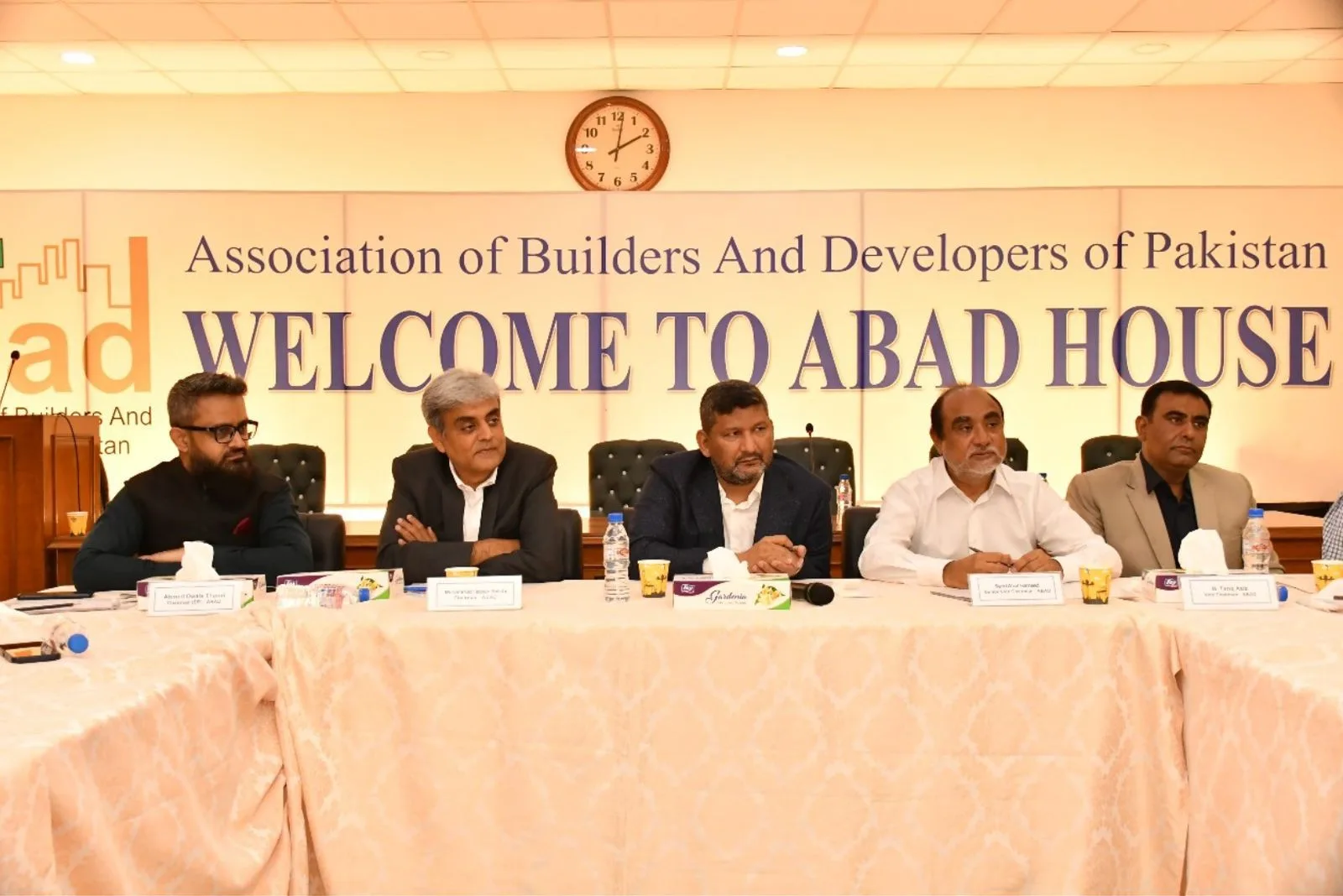
Chairman of the Association of Builders and Developers of Pakistan (ABAD), Muhammad Hassan Bakhshi, has urged the government to implement a stable and predictable tax regime to foster investment and stimulate growth within the nation’s construction sector.
Speaking at a press conference, Bakhshi emphasized the detrimental effects of fluctuating tax policies on the real estate market, which he described as essential to Pakistan’s economic stability and growth. Bakhshi argued that an inconsistent tax environment breeds uncertainty for both developers and investors, often resulting in stalled projects and a hesitance to engage in long-term planning.
“The construction industry is a key driver of our economy, significantly contributing to job creation and infrastructure development. Yet, the unpredictability of our tax policies remains one of the most significant challenges we face,” he stated.
He called for a long-term tax strategy that would enable builders to make informed decisions and invest confidently in large-scale projects. “A consistent tax policy not only supports developers but also has the potential to attract foreign direct investment, which is critical for enhancing our overall economic landscape,” he added.
Bakhshi further articulated that the construction sector could thrive if the right frameworks were established, particularly to address Pakistan’s urgent housing needs. He noted that a stable tax structure would encourage investment in affordable housing, a critical element for alleviating the growing housing crisis in urban areas.
At the press conference, attended by ABAD’s Patron-in-Chief Mohsin Sheikhani and other senior officials, Bakhshi highlighted the financial burdens placed on the industry by excessive taxation and the lack of accessible loans. He revealed that many construction projects remain delayed, with billions of rupees from builders and developers tied up due to these issues. “Without the support of Pakistani banks offering loans at favorable terms, many projects will either stagnate or be abandoned altogether,” he warned.
In addition to financial constraints, Bakhshi pointed to land encroachments as a significant obstacle. He recounted the troubling incident involving a member’s 62-acre plot in Keamari, which was reportedly seized by armed individuals, underscoring the insecurity faced by builders.
Mohsin Sheikhani echoed these sentiments, stating that Pakistan is currently grappling with a deficit of over 12 million housing units. He stressed that meeting this demand requires a supportive environment for construction activities.
“The construction industry is the backbone of any economy. Yet, in Pakistan, we are witnessing the opposite trend. We are not asking for incentives; we simply want to operate freely without fear,” Sheikhani remarked.
As industry leaders express increasing frustration over regulatory challenges and taxation, they warn that unless the situation improves, both local and foreign investors may seek opportunities abroad, further jeopardizing Pakistan’s construction sector and economic potential.
This post was last modified on October 18, 2024 10:25 pm
Norway's biathlon team capped their Olympics gold haul spectacularly, with Johannes Dale-Skjevdal clinching a record-breaking…
A powerful 5.6 magnitude earthquake hit Pakistan's Swat and nearby regions, triggering significant tremors across…
Recent developments within the British royal family have thrust King Charles III into a profound…
Pakistan Hockey Federation President Mohyuddin Wani emphasized the importance of focused preparation as the national…
A powerful 5.9-magnitude earthquake struck KP on Friday evening, causing significant tremors that rattled areas…
Senior U.S. officials, including Secretary of State Marco Rubio and British Foreign Secretary Yvette Cooper,…
This website uses cookies.